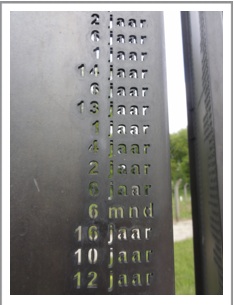 Human dignity and rights needed to be set free from religious foundations; only a secular basis could maintain their continued existence free from religious violence and tensions.
Human dignity and rights needed to be set free from religious foundations; only a secular basis could maintain their continued existence free from religious violence and tensions.
At least, that was the learned opinion one of Holland’s best-known atheists expressed in a seminar last week in The Hague.
Dr Margriet Krijtenburg, who spoke in Dublin at the recent State of Europe Forum, was presenting her doctoral thesis on Robert Schuman to an invited audience, and had invited her supervising professor to be one of her respondents.
As in Dublin, Margriet had described Schuman’s conviction that the Christian faith had a significant role to play in restoring unity in Europe and in Europe’s future. Concepts such as human dignity and solidarity were, in Schuman’s understanding, intrinsically linked with a Christian concept of humanity.
Margriet’s professor agreed that the identification of such values as the freedom of expression, of religion and of assembly had laid foundations for the unique European project.
But fortunately, he said, those values had been set free from their religious roots and redefined within a sustainable secular framework. Such a framework protected human dignity from religious intolerance and offered it a tolerant pluriform context.
‘Special’ camp
A few days after attending this seminar, an engagement near Den Bosch gave me the opportunity to visit the former Nazi-concentration camp in Vught while in the neighbourhood.
Some 31,000 Jews, political prisoners, resistance fighters, students, Jehovah’s Witnesses, tramps, black marketeers and criminals were thrown together into Kamp Vught, some for short periods, others longer. Almost all of the 12,000 Jewish interns, over a third of the camp population, were later murdered in extermination camps in Poland.
A reconstructed cell reminded visitors of the so-called ‘bunker-drama’ of January 15, 1944. In response to a protest by prisoners, the camp commandant ordered 74 women to be locked up in one cell together in a space of nine square metres, without ventilation. When the doors were finally opened again after 14 hours, ten of the women had died.
Most sobering, however, was a memorial to the 1800 Jewish children taken away from the camp on June 6th and 7th, 1943, to a ‘special children’s camp’, so the parents were told. Some parents were allowed to accompany the children. After a three-day train ride, almost every person perished in the Sobibor extermination camp in Poland.
The cold, metal monument carried those names and ages of 1269 of the children that were known. I stood there transfixed and emotionally disturbed reading the ages of these little defenseless human beings. I sought out the ages of my own three grandchildren: three months, two years and four years.
At the base of the monument was a sculptured teddy bear, a truck and other toys. In the trunk of my car was a wrapped present for my grandson celebrating his second birthday. What if he had been born 70 years earlier, to Jewish parents?
Squatters
What was the source of the evil that had led to this vile crime? Was it not a denial of the Biblical truth that the dignity of every human is rooted in the understanding that life is a gift of the Creator? and that each one of us has been created in His image– Imago dei?
Had not the ‘freeing from religious foundations’–the rejection of the biblical view of humanity–by Hitler and his henchmen caused this European tragedy? Was it not this very tragedy that had led Schuman and others to formulate the European Convention on Human Rights, to which every member nation of the Council of Europe had to agree? Was it not their aim to render such ‘state gangsterism‘ impossible, to prevent forever the atrocities of Kamp Vught, Dachau and Auschwitz?
How quickly we are forgetting this most important lesson of modern times! No, professor, it is not ‘fortunate’ that in the minds of millions of Europeans today human dignity has been freed from its historical and transcendent foundations. For there are no other foundations. We can’t invent foundations or roots. A process of materialistic evolution in which only the fittest survive can never result in protection and rights for the weak and vulnerable.
As (non-believer) John Gray, formerly of the London School of Economics, wrote in ‘Straw Dogs’: Humanists are simply Christians in disguise. If there is no God, there is no basis for human dignity and human exceptionalism. Humanism is the creed of those who have ‘given up an irrational belief in God for an irrational belief in humans’.
The truth is, many Europeans are squatters living in a house built on Judeo-Christian foundations–but they don’t want to pay the rent.
Till next week,
Jeff Fountain
Till next week,

It is not possible to remove the roots of an apple tree and exchange them with those of a pear tree and still expect that it will produce apples. The truth is that it will neither produce apples nor pears anyway. The final result of this tree will be death.
If Europe’s roots are Christian and the relative well-being we are living in Europe is the result of this Christian influence, it is therefore evident that the values of human dignity and rights will not survive if we decide to remove the roots. We can’t want peace and eliminate Christian roots which are based on love for God and for one another.
It is time for European Christians to take their stand and live these basics again. The rebuilding of our continent will only happen if Christians decide to live this reality in their families, villages or cities, regions and nations. As Edmund Burke said, all that is necessary for the triumph of evil is that good men do nothing.